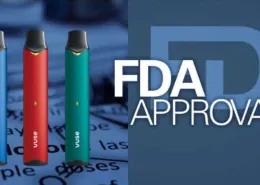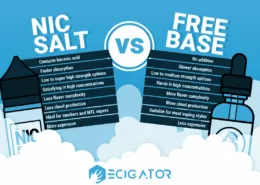37th World No Tobacco Day: Global Efforts on Youth Vaping Regulations
As the world prepares to observe the 37th World No Tobacco Day on May 31, 2024, the World Health Organization (WHO) is focusing its attention on the critical issue of “Protecting children from tobacco industry interference.” The WHO’s recent report, titled “Hooking the Next Generation,” sheds light on the insidious tactics employed by the tobacco industry to target young people, fueling a new wave of addiction that threatens the health and well-being of future generations.
The Alarming Connection Between E-cigarettes and Traditional Cigarettes
Extensive research has revealed a disturbing trend: the use of e-cigarettes nearly triples the odds of young people transitioning to traditional cigarette use, particularly among those who have never smoked before. This finding underscores the urgent need for governments to take decisive action to regulate the sale and marketing of tobacco products, e-cigarettes, and other nicotine delivery systems.
The WHO has issued a clear call to action, urging nations to implement comprehensive measures to protect young people from the harmful effects of tobacco and nicotine addiction. These measures include establishing 100% smoke-free indoor public spaces, banning flavored e-cigarettes that appeal to youth, prohibiting all forms of tobacco advertising and promotion, increasing taxes on tobacco products, raising awareness about the deceptive tactics employed by the tobacco industry, and supporting youth-led education and advocacy initiatives.
The Global Response: Nations Unite to Combat Youth Vaping
In response to the growing concern over youth vaping, countries around the world are taking proactive steps to strengthen their regulatory frameworks and protect the health of their youngest citizens. Ecigator, a leading authority on e-cigarette trends and policies, has compiled a comprehensive overview of recent regulatory developments from across the globe.
United States: A Two-Pronged Approach
In the United States, efforts to curb youth vaping are being pursued through both regulatory action and legislative initiatives. In April 2023, New York and Texas passed laws banning the sale of flavored e-cigarette products that appeal to minors, with hefty fines in place for violators. More recently, in May 2024, the U.S. Food and Drug Administration (FDA) issued warning letters to 14 online retailers found to be selling unauthorized e-cigarette products that are popular among youth.
United Kingdom: Cracking Down on Illegal Sales and Banning Disposables
The United Kingdom has also taken significant steps to address the youth vaping epidemic. In April 2023, UK Health Secretary Neil O’Brien announced the creation of a £300 million “Illegal Vapes Enforcement Squad” tasked with cracking down on sales to minors. In January 2024, the UK government went a step further, announcing a ban on disposable vapes set to take effect in April 2025.
Perhaps the most significant development in the UK came in April 2024, with the passage of the “Tobacco and Nicotine Levelling Up Bill.” This groundbreaking legislation, which passed with an overwhelming 383-67 vote, prohibits the sale of tobacco products to anyone born after 2009, with the legal smoking age set to rise annually until a total ban is achieved. The bill also includes specific measures aimed at curbing youth vaping, such as banning cheap disposable vapes and restricting flavors to prevent nicotine addiction among young people.
France: Striving for a “Smoke-Free Generation”
France has also set its sights on creating a “smoke-free generation” by 2032. In November 2023, the French government announced plans to raise the minimum price of cigarettes to €13 starting in 2027 and to ban disposable e-cigarettes altogether. Health Minister François Braun also declared beaches, public parks, forests, and areas around schools to be smoke-free zones.
In December 2023, the French National Assembly unanimously passed a bill banning disposable vapes. The bill, which is currently pending approval by the Senate and the European Commission, is expected to be finalized by late summer 2024.
The Netherlands, Belgium, and Luxembourg: Pioneering Novel Tobacco Bans
The Netherlands, Belgium, and Luxembourg have also taken innovative approaches to combat youth vaping. In June 2023, the Dutch government decided to ban all e-cigarette flavors except tobacco starting January 1, 2024. Belgium followed suit in March 2024, with the Health Minister announcing a ban on disposable e-cigarette sales from January 1, 2025, as part of the country’s efforts to achieve a “smoke-free generation.”
In May 2024, Luxembourg made the decision to regulate nicotine pouches in the same manner as tobacco products, prohibiting advertising, free distribution, and remote sales to reduce youth access.
Ireland: Raising the Bar for Tobacco Sales
Ireland has announced plans to raise the legal age for purchasing tobacco products to 21 in an effort to reduce smoking rates. The Health Minister has also tightened restrictions on e-cigarette sales to further protect young people from the dangers of nicotine addiction.
Poland: Taking Aim at Disposable E-cigarettes
In Poland, the Health Ministry has indicated a potential ban on disposable e-cigarette sales within the next few months, with the goal of implementing the ban before the summer break. The Health Minister has expressed strong support for a complete ban on these products.
Italy: Limiting Access to Tobacco Products
Italy has taken steps to clarify its regulations surrounding the sale of e-cigarettes. As of July 2023, e-cigarette sales are only permitted at tobacconists or specialized vape shops. Products ordered from other EU countries (produced there or legally imported by EU companies) can also be collected at pharmacies and herbalist shops authorized by customs and the Monopoly Agency, in addition to tobacconists and vape shops.
Canada: Adapting to New Nicotine Products
In Canada, several provinces have taken action to regulate new nicotine products. In August 2023, Quebec announced a ban on e-cigarette flavors except tobacco (or unflavored), along with a ban on bottled e-liquids exceeding 30ml and e-cigarette devices exceeding 2ml capacity.
British Columbia has also been closely monitoring international e-cigarette regulations. While the province boasts Canada’s lowest smoking rate, its youth vaping rate remains above average. In February 2024, following British Columbia’s decision to ban flavored nicotine pouches from being sold behind pharmacy counters, Premier David Eby stated that the province was taking action to prevent youth access to these “dangerous” and “addictive” products. Health Canada is currently working to regulate their sale.
Russia: Curbing E-cigarette Marketing
In Russia, President Vladimir Putin signed a law in May 2023 banning the sale of e-cigarettes to minors. The law, which took effect on June 1, prohibits sales at fairs, exhibitions, remotely, or through vending machines. Display and demonstration within sales areas are restricted, except for demonstrations directly to buyers. Discounts, including coupons and vouchers, are also prohibited.
Australia: Comprehensive E-cigarette Policies
Australia has implemented a comprehensive set of e-cigarette policies. Starting in January 2024, disposable vapes were banned, and doctors and nurses were authorized to prescribe e-cigarettes, allowing patients to purchase them from pharmacies.
In March 2024, Health Minister Mark Butler introduced the Therapeutic Goods and Other Legislation Amendment (E-cigarette Reforms) Bill 2024, which aims to protect youth from vaping by preventing the vape manufacture, advertising, supply, and commercial possession of non-therapeutic disposable vapes. The bill proposes increased penalties for convicted offenders, including up to seven years imprisonment.
New Zealand: Prioritizing Child Safety
New Zealand has taken steps to prioritize child safety when it comes to e-cigarettes. As of August 2023, all e-cigarette devices sold in the country must have removable batteries. Sales are restricted near schools, and new vape shops cannot open within 300 meters of a school. Flavor names like “cotton candy,” “strawberry jelly,” and “donut” are prohibited, requiring generic descriptions like “orange” or “berry.”
However, in November 2023, the new government overturned several regulations implemented by the previous Labour government, including a ban on tobacco sales to citizens born after January 1, 2009, reduced nicotine content in tobacco products, and a reduction of over 90% of tobacco retailers.
Malaysia: Protecting Minors from Tobacco and E-cigarettes
In December 2023, the Malaysian Senate passed the Control of Smoking Products for Public Health Bill 2023, which prohibits the sale of tobacco and e-cigarettes to those under 18 and bans their purchase and use by this age group. The bill also mandates product registration for all tobacco and e-cigarette products and regulates e-cigarette vending machines and online sales.
Thailand: Intensifying the Crackdown on Illegal E-cigarette Sales
Thailand has announced plans to intensify its crackdown on illegal e-cigarette sales. In April 2024, a government spokesperson announced the establishment of a dedicated task force to address the issue, following a previous enforcement campaign that was hampered by information leaks and low arrest rates. The government plans to consult with legal authorities to increase penalties for such activities.
Philippines: Enforcing Regulations and Protecting Youth
In the Philippines, the Department of Trade and Industry (DTI) planned to issue a directive in July 2023 requiring e-commerce platforms like Shopee and Lazada to halt e-cigarette sales until they implement adequate verification mechanisms to ensure sellers comply with relevant laws. The DTI’s move came in response to the lack of age verification systems on these platforms.
In March 2024, the Philippine National Police intensified enforcement of e-cigarette regulations, issuing warnings to minors violating the rules and arresting vendors selling to them. The following month, the DTI released supplementary guidelines for mandatory e-cigarette product certification. Starting in June, all locally manufactured or imported e-cigarette products must carry a Philippine Standard (PS) mark or Import Commodity Clearance (ICC) sticker.
India: A Comprehensive Ban on E-cigarettes
India has implemented a comprehensive ban on e-cigarettes. In July 2023, the Ministry of Health issued a notification for strict enforcement of the Prohibition of Electronic Cigarettes (Production, Manufacture, Import, Export, Transport, Sale, Distribution, Storage and Advertisement) Act, 2019. The notification directed all producers, manufacturers, importers, exporters, distributors, advertisers, and transporters, including courier services, social media websites, and online shopping websites, directly or indirectly involved in the production, procurement, or sale of e-cigarettes.
Mexico: Proposing a Ban on E-cigarettes and Vaping Devices
In Mexico, President Andrés Manuel López Obrador announced his intention in December 2023 to submit a bill banning e-cigarettes and vaping devices before leaving office in 2024.

Ecigator Sticky Open Pod Kit
The Sticky Open Pod Kit is a contemporary vaping device that combines functionality with fashion. This kit is designed with a box-style form factor, offering a compact and stylish appearance that’s ideal for vaping enthusiasts on the move.
At the heart of this kit is a Refillable Open Pod System, with a capacity of 2ml, perfect for accommodating a variety of e-liquids. The pod is equipped with a high-quality Mesh Coil that not only ensures a rich and flavorful vaping experience but also boasts durability for up to 8 Refills.
A Global Call to Action
As nations around the world grapple with the growing threat that e-cigarettes pose to the health and well-being of their youth, it is clear that a coordinated, global response is needed. Protecting young people from the insidious tactics of the tobacco industry is not just a matter of public health, but a social responsibility that requires the concerted efforts of governments, public health organizations, educators, and communities.
Through a combination of robust legislation, public education campaigns, and international collaboration, there is hope that we can mitigate the impact of e-cigarettes on future generations and create a world where young people are empowered to make informed, healthy choices about their lives.
On this World No Tobacco Day, let us reaffirm our commitment to protecting the health and well-being of our youth and pledge to work tirelessly to build a future free from the scourge of tobacco and nicotine addiction.
- How to Choose Safe CBD for Dogs Without Guesswork - August 4, 2025
- Texas Senate Passes Revised THC Ban Bill (SB 5) - August 4, 2025
- Best Delta-8 THC Carts of 2025: Top 5 Vapes Reviewed - July 16, 2025









